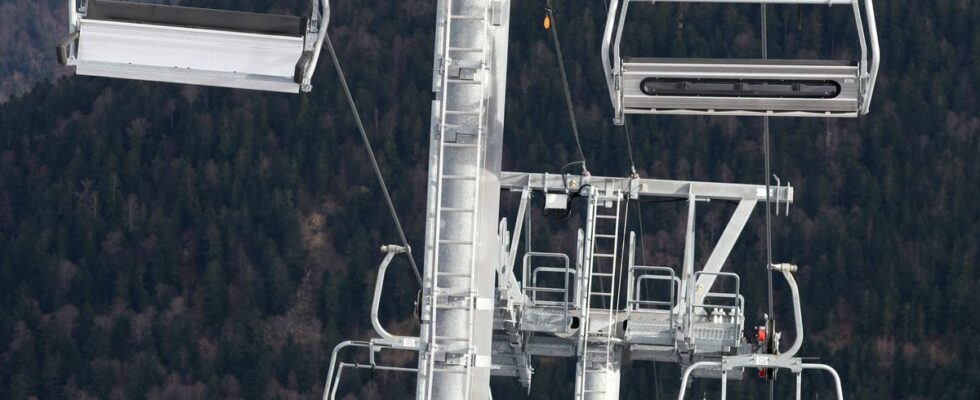Between the reform of unemployment insurance and that of pensions, anger is brewing in French ski resorts. The two main ski lift employee unions, Force Ouvrière (FO) and CGT, have filed strike notices for January 31. Although “unlimited”, the strike notice filed Monday by FO does not mean that the employees of the ski lifts will not return to work at the end of this second national day of mobilization against the pension reform, clarified to AFP Eric Becker, FO general secretary for ski lifts and seasonal workers.
“The lifts will operate normally from the next day: we do not want to further weaken companies already in difficulty,” he said. “This unlimited notice” aims, according to him, to respect the legal deadlines to “allow seasonal workers to participate in the next day of mobilization against the pension reform, which should be decided for one day in February”.
The CGT ski lifts had already filed its own renewable strike notice to call for a strike on January 19, the first day of national mobilization against the pension reform, the union told AFP.
The drop of water too much
The January 31 strike is also for seasonal workers “the only way to be heard by the government, while we have been denouncing the precariousness they are experiencing for months, with the reform of their unemployment insurance system”. , explained Eric Becker. “We can no longer recruit, so much has this reform penalized seasonal workers”, whose unemployment benefits are sometimes halved, he lamented. “We are told that we are taking holidaymakers hostage, but it is the seasonal workers who are. »
According to Pierre Scholl, national representative of the CGT for ski lifts, the reform of unemployment insurance has been “a big big point of tension for a while”, while the postponement of the retirement age to 64 years is “the straw that broke the camel’s back, it mobilizes a lot”. “We can’t imagine trackers transporting injured people at 64. And today, seniors who are no longer hired on construction sites, women who have trouble finding work in the off-season have found themselves with nothing: that’s a lot of families,” he said. detailed.
Precarious seasonal workers
Since December 1, 2021, the minimum working time to recharge the rights to unemployment benefit for seasonal workers is six months out of the last 24 months to obtain at least six months of compensation. Previously, it only took four months out of the last 24 months to top up rights for four months.
According to an impact study by Unédic, this change to six months should lead, during the first year of application, to delay the opening of rights to 475,000 people, in particular young people or seasonal workers who multiply contracts. short. Since its entry into force, many of them have converted or settled down, even though seasonal tourism workers are among the most sought-after professions, according to Pôle emploi.

